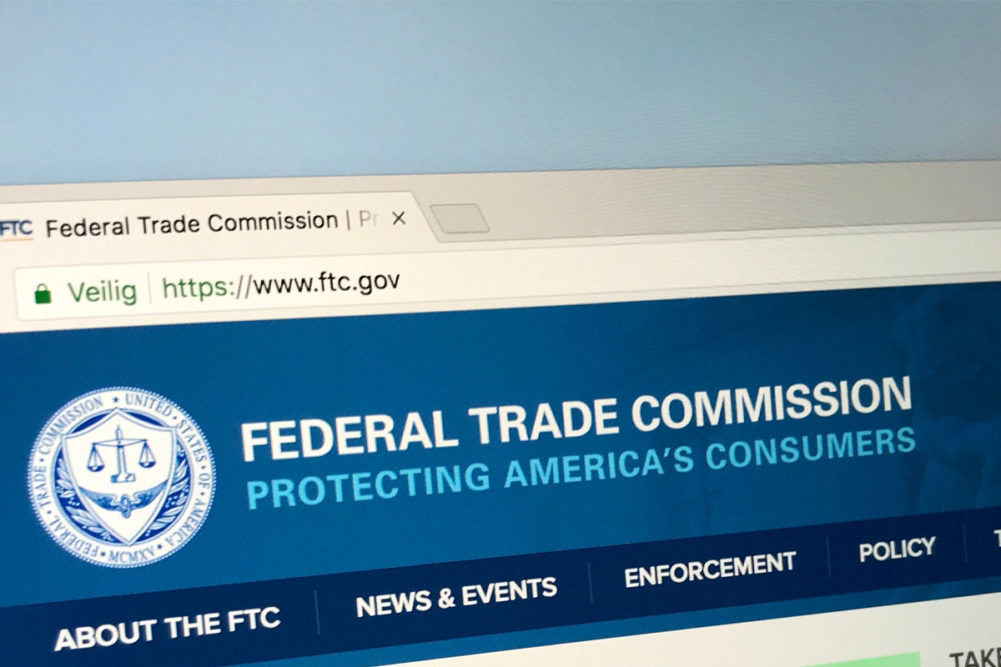WASHINGTON — The American Beverage Association may have violated a Federal Trade Commission Act by “failing to adequately disclose” that the association apparently hired influencers to promote the safety of aspartame in social media posts, according to an FTC warning letter dated Nov. 13.
The FTC also sent a warning letter to the Canadian Sugar Institute about “failing to adequately disclose” the Institute apparently hired influencers to give advice on sugar consumption in social media posts.
“It’s irresponsible for any trade group to hire influencers to tout its members’ products and fail to ensure that the influencers come clean about that relationship,” said Samuel Levine, director of the FTC’s Bureau of Consumer Protection. “That’s certainly true for health and safety claims about sugar and aspartame, especially when made by registered dietitians and others upon whom people rely for advice about what to eat and drink.”
Penalties for misleading endorsements can be up to $50,120 per violation for future failures to disclose material connections.
“We took proactive, prudent and meticulous steps to be transparent about our partnership with credible experts who spoke to the science behind the safety of aspartame and the FDA’s determination that it is safe,” said William M. Dermody Jr., vice president, media and public affairs for the American Beverage Association. “Importantly, no question has been raised about the substance of these posts. We will continue our ongoing commitment to disclose the relationship between dietitians and American Beverage and we appreciate the FTC’s guidance on how to best ensure transparency for consumers.”
Warning letters also went to the influencers who posted about the safety of aspartame: Valerie Agyeman, Nichole Andrews, Leslie Bonci, Keri Gans, Stephanie Grasso, Cara Harbstreet, Andrea Miller, Idrees Mughal, Adam Pecoraro and Mary Ellen Phipps, PhD. Influencers who received warning letters for posting about sugar were Jenn Messina and Lindsay Pleskot.
Each letter asked the recipient to contact FTC staff within 15 days to say what actions were being taken or will be taken to address the FTC’s concerns.
The influencers posted advice endorsing the safety of aspartame, a sweetener used to reduce sugar in products, on TikTok and Instagram. Some of the posts had no disclosures, and none of the videos included any disclosures in the video itself, according to the FTC.
“Viewers can easily watch a video without reading disclosures in a post’s text description,” said Serena Viswanathan, associate director, director of advertising practices for the FTC, in the letter.
She added superimposing larger text over the videos would be an example of a “clear and conspicuous” disclosure.
Some of the dietitians had disclosures like “#sponsored” or “#ad” further down in the text descriptions of their posts, which made them “insufficiently conspicuous,” she said, adding a “paid partnership” disclosure was not enough either.
“We are concerned that even if viewers read the ‘paid partnership,’ ‘#sponsored’ and ‘#ad’ disclosures, they may be inadequate in the context of the posts, because some of the dietitians did not identify the sponsor of the posts,” Ms. Viswanathan said.
Aspartame was in the news in July when the World Health Organization’s International Agency for Research on Cancer listed the sweetener as possibly carcinogenic to humans. The Joint Food and Agriculture of the United Nations/WHO Expert Committee on Food Additives (JECFA), however, ruled the acceptable daily intake of aspartame will remain at 40 mg/1 kilogram (2.2 lbs) of body weight per day.
Ms. Messina and Ms. Pleskot, both dietitians, posted dietary advice on Instagram about consuming sugar-containing products. None of the videos included any disclosures, Ms. Viswanathan said in the warning letter. The FTC in the letter also had problems with #sponsored and “paid partnership with @cndnsugarnutr.” Consumers are unlikely to know “cndsugarnutr” means the Canadian Sugar Institute, Ms. Viswanathan said.





